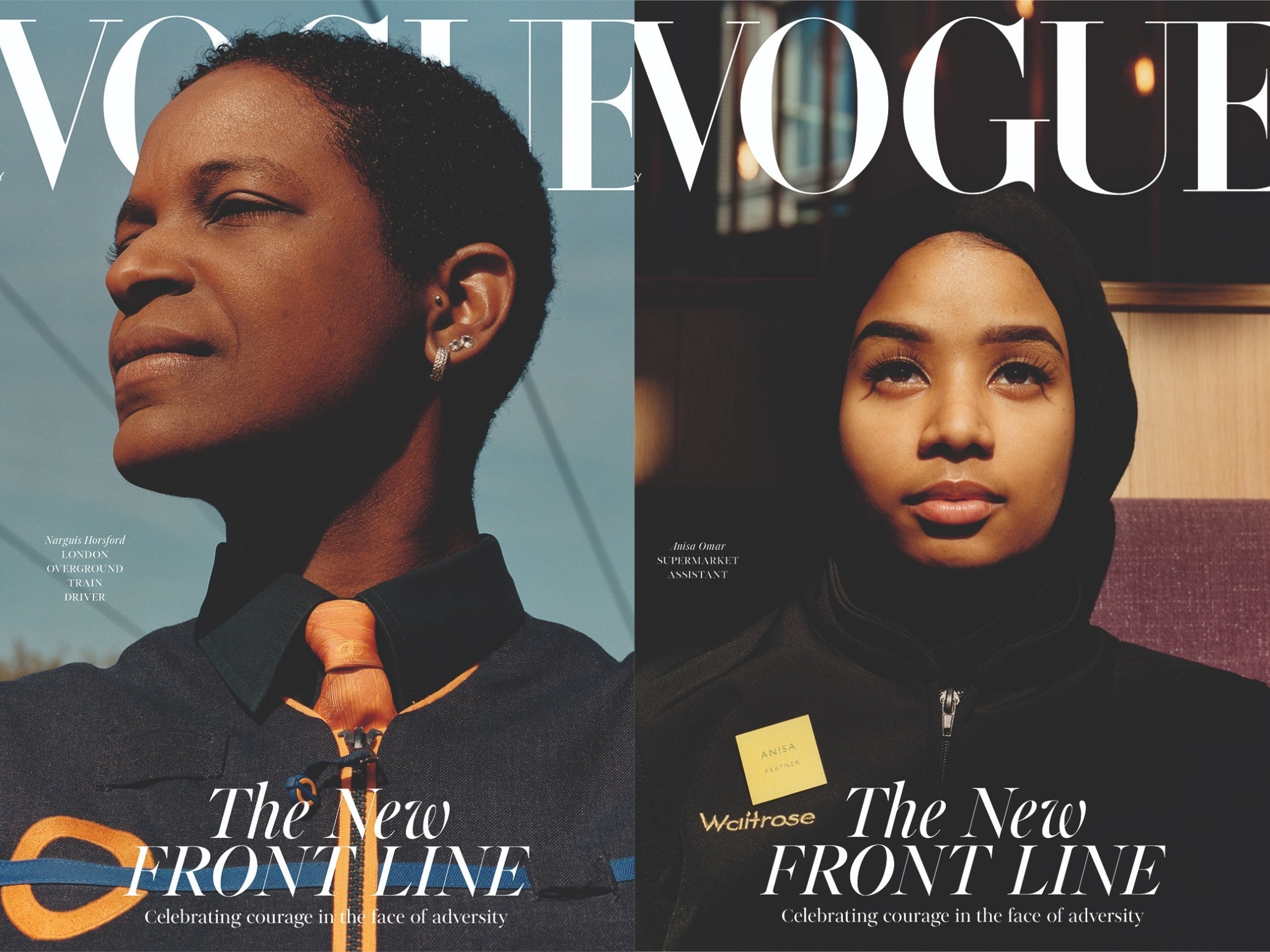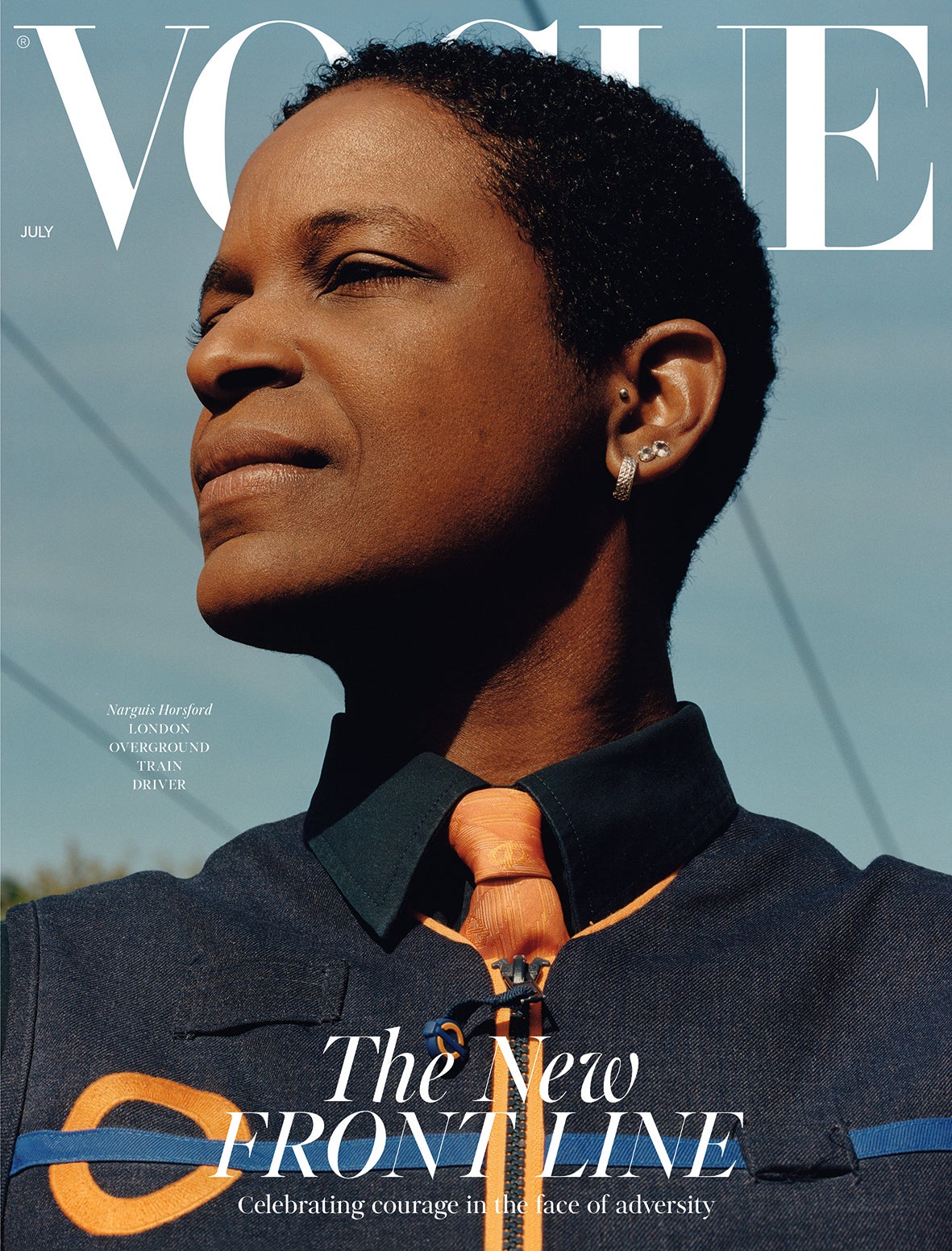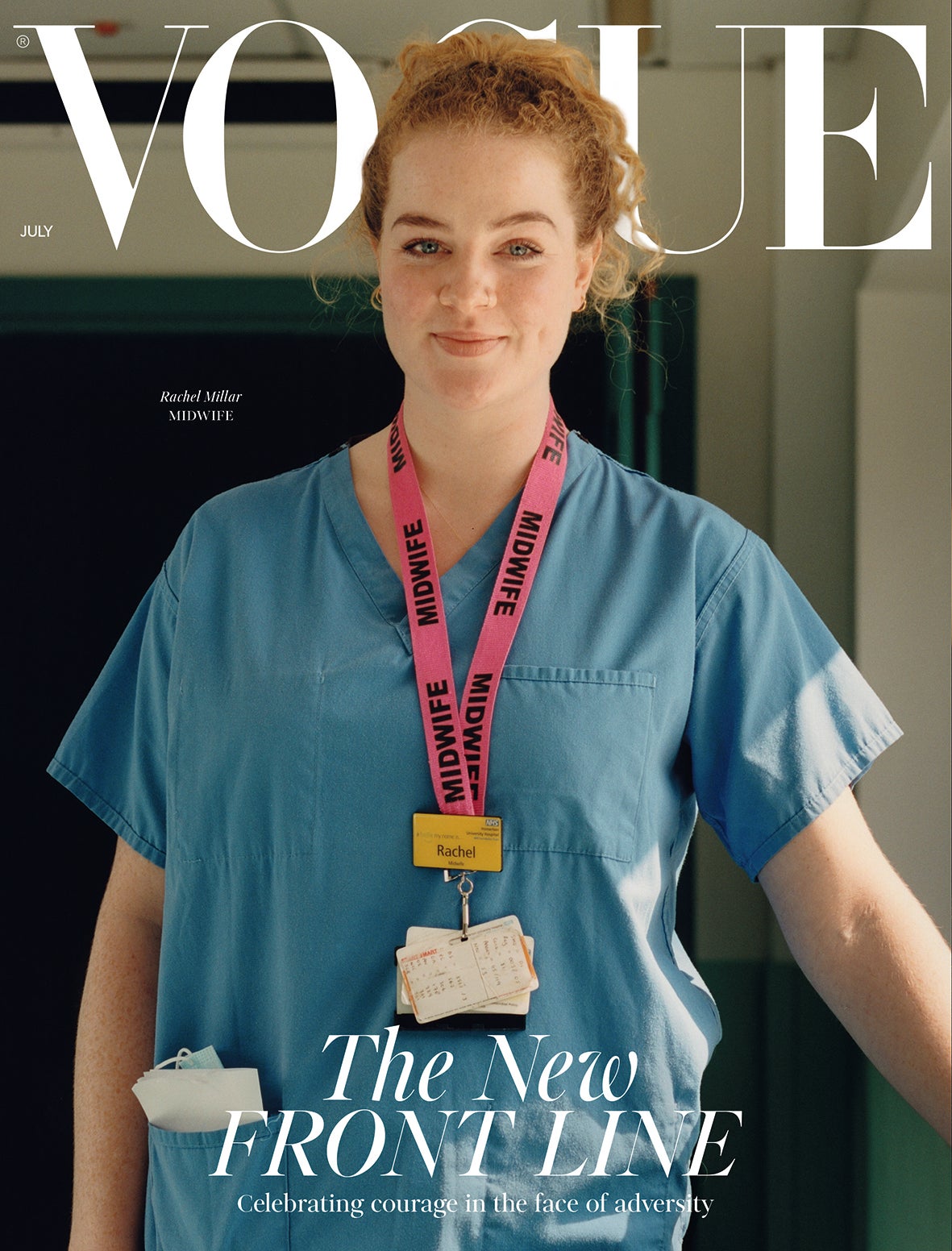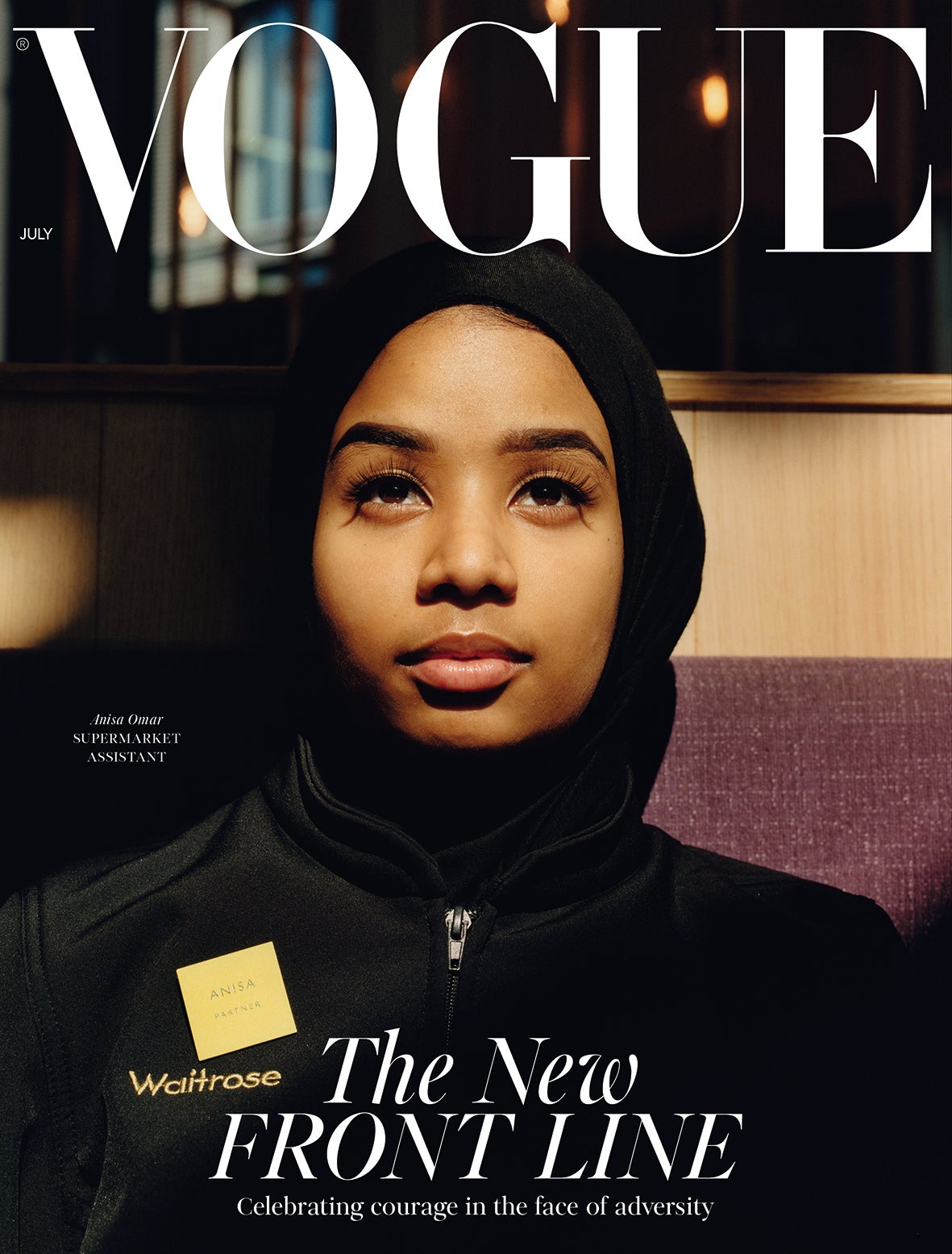British Vogue honours frontline workers on cover of July issue
Narguis Horsford, a train driver, Rachel Millar, a community midwife, and Anisa Omar, a supermarket worker, star on magazine’s cover

Your support helps us to tell the story
From reproductive rights to climate change to Big Tech, The Independent is on the ground when the story is developing. Whether it's investigating the financials of Elon Musk's pro-Trump PAC or producing our latest documentary, 'The A Word', which shines a light on the American women fighting for reproductive rights, we know how important it is to parse out the facts from the messaging.
At such a critical moment in US history, we need reporters on the ground. Your donation allows us to keep sending journalists to speak to both sides of the story.
The Independent is trusted by Americans across the entire political spectrum. And unlike many other quality news outlets, we choose not to lock Americans out of our reporting and analysis with paywalls. We believe quality journalism should be available to everyone, paid for by those who can afford it.
Your support makes all the difference.British Vogue is honouring workers on the frontline of the coronavirus pandemic in its latest issue, featuring three key workers on the cover.
Titled “The New Front Line”, the magazine‘s July issue stars three women on its cover: Narguis Horsford, a train driver on the London Overground; Rachel Millar, a 24-year-old community midwife in east London; and Anisa Omar, a 21-year-old supermarket worker in King’s Cross.
Edward Enninful, editor-in-chief of the publication, said he could “think of no more appropriate trio of women to represent the millions of people in the UK who, at the height of the pandemic, in the face of dangers large and small, put on their uniforms and work clothes and went to help people”.
They were captured by photographer Jamie Hawkesworth as part of a 20-page portfolio for the magazine and spoke to British Vogue about their unique experiences working throughout the pandemic.
“I don’t feel anxious about going to work,” said Ms Horsford, who has been working as a train driver on the London Overground for five years.
Ms Horsford said she “felt such a sense of pride” when one day a passenger at Barking thanked her for her work.
“I am no hero, but I’m proud of being a train driver and the essential role we are playing during the coronavirus crisis. Our services are vitally important to keep London moving throughout these unprecedented times and maintaining safety, to ensure our key workers can get to where they need to be to provide the services that are required.”
Ms Millar, a community midwife, said “one of the hardest moments” for her was when her bike was stolen, expressing the “importance” of being able to cycle in east London for a midwife, “especially when we’re desperately trying to avoid public transport”.
“Having to carry on working for the rest of the week, maintain good morale, and be that reassuring voice to worried parents was made slightly more difficult,” she stated.
The midwife recalled how a friend raised £500 for her within a space of a few hours, with a local company donating a brand new electric bike in response to a tweet.

“It’s just one example of the community support and kindness that I’ve seen over the past few months, and what initially drew me to work in Homerton Hospital and the surrounding area,” she said.
“To say that I’m proud of my work family and my wider community’s response to the pandemic, is an understatement.”
Ms Millar added her hope that “after the 8pm clapping fades”, the NHS “won’t be forgotten”.
“To resume to ‘normal’ would be a step in the wrong direction.”

Ms Omar explained to British Vogue how prior to the pandemic, members of the public “would look at us as service assistants”.
“We’re there to show them where the eggs are or if they want to complain about something. But now they’re a lot more understanding,” she said.
“They understand that we’re here all the time, and they don’t have to leave their houses. People are a lot nicer, they’re warmer.”
Ms Omar described being a key worker as “nice”, remarking that her job “was not something that was that big of a deal before”.

“But now it’s like we’re important,” she stated. “We have to be here, regardless of what’s happening in the world. It’s more than just a job now.”
When conceiving the idea of “The New Front Line” issue, Enninful said he was “cognisant that the doctors, nurses and carers in the NHS were making huge sacrifices for the country in the midst of this devastating pandemic”.
“But I was also thinking about all the other people out there – the bus and Tube drivers, the postman who delivered my letters, the people I saw stacking shelves in my local supermarket – who were putting their lives on the line for us, every day,” the editor said.
Enninful wrote that there has been a “shift” in who the population “look up to and admire”, and these individuals “need to be celebrated”.
“They were always heroes, doing their jobs to keep this country on its feet – but they are also normal people,” he stated.
“There is such a beauty in normality, but it’s taken an international crisis for us to see it.”
Read the full feature in the July issue of British Vogue, available via digital download and on newsstands Friday 5th June.
Join our commenting forum
Join thought-provoking conversations, follow other Independent readers and see their replies
Comments